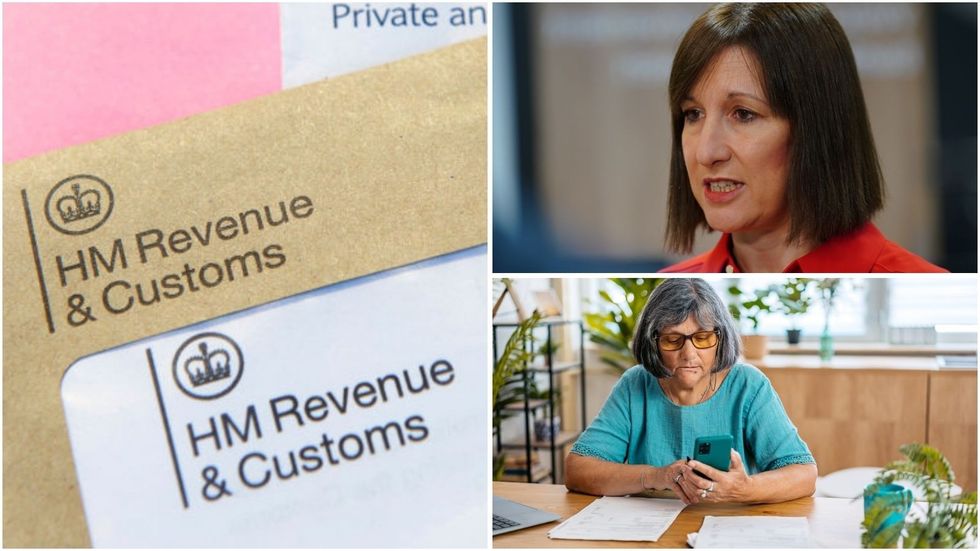HMRC has raked in an extra £620million as inheritance tax (IHT) receipts hit £6.3billion for the first three quarters of the 2024/25 financial year.
As inheritance tax receipts continue to rise, Britons are reminded they can claw back some cash from the taxman with effective tax planning.
The rise in receipts is mainly due to increasing asset prices, the freezing of tax thresholds (which has been extended for another two years in the Budget), and additional changes to inheritance tax rules.
These factors are expected to keep driving higher IHT revenues for the Government.

There are specific factors which are expected to keep driving higher IHT revenues for the Government
GETTY
Stephen Lowe, group communications director at retirement specialist Just Group said: “The latest IHT receipts data for December will be a welcome end-of-year bonus for the Government’s coffers as the tax continues to deliver record sums.
“The latest changes to IHT announced by the Chancellor in the Autumn Budget are likely to see the Treasury collect billions more in Inheritance Tax before the end of the decade.
“According to OBR estimates approximately one in 10 deaths is forecast to incur IHT by 2029-30, almost double the proportion in 2023-24, as the tax begins to bite a wider swathe of Middle Britain.”
The specialist has encouraged people to make sure they have an up-to-date valuation of their estate, including a recent assessment of their property wealth, to help them understand if they are likely to incur IHT.
Estate planning is complex and professional financial advice can be “immensely helpful” for people who want to manage their estate efficiently and “pass on the maximum inheritance to loved ones”.
Shaun Moore, tax and financial planning expert at Quilter said: “This relentless rise is no coincidence. With inheritance tax thresholds frozen until 2030, more families are being pulled into the scope of IHT, and this trend shows no signs of slowing.
LATEST DEVELOPMENTS:
“Add to that the significant changes coming in April 2027, when pensions will be drawn into taxable estates, and the Government looks set to cash in on an ever-expanding pool of taxpayers.
“Farming families, too, could face tougher times as reductions to Agricultural Property Relief start to bite, potentially forcing some to make difficult decisions about the future of their farms.
“Meanwhile, tweaks to Business Relief and AIM share rules are also likely to keep boosting HMRC’s coffers in the years ahead.”
How to cut your inheritance tax bill
Giving away assets during one’s lifetime could help their loved ones pay less inheritance tax, but strict rules are in place:
- Anyone can give up to £3,000 of their assets to loved ones each tax year without that sum becoming liable for IHT. If they didn’t use the allowance last year, they can combine it and pass on £6,000.
- Britons can give £5,000 to their children for their wedding, £2,500 to their grandchildren or great-grandchildren, and £1,000 to any other person.
- They can make further gifts as they please, but if they die within seven years of making the gift, IHT will be payable on a sliding scale known as taper relief.
Britons can also make gifts out of any excess regular income.
Gifts from surplus income are not subject to inheritance tax, no matter how large the amount. But to qualify, the gift-giver must be able to prove the gift has come from income rather than capital. The gift must also not impact the giver’s quality of life.